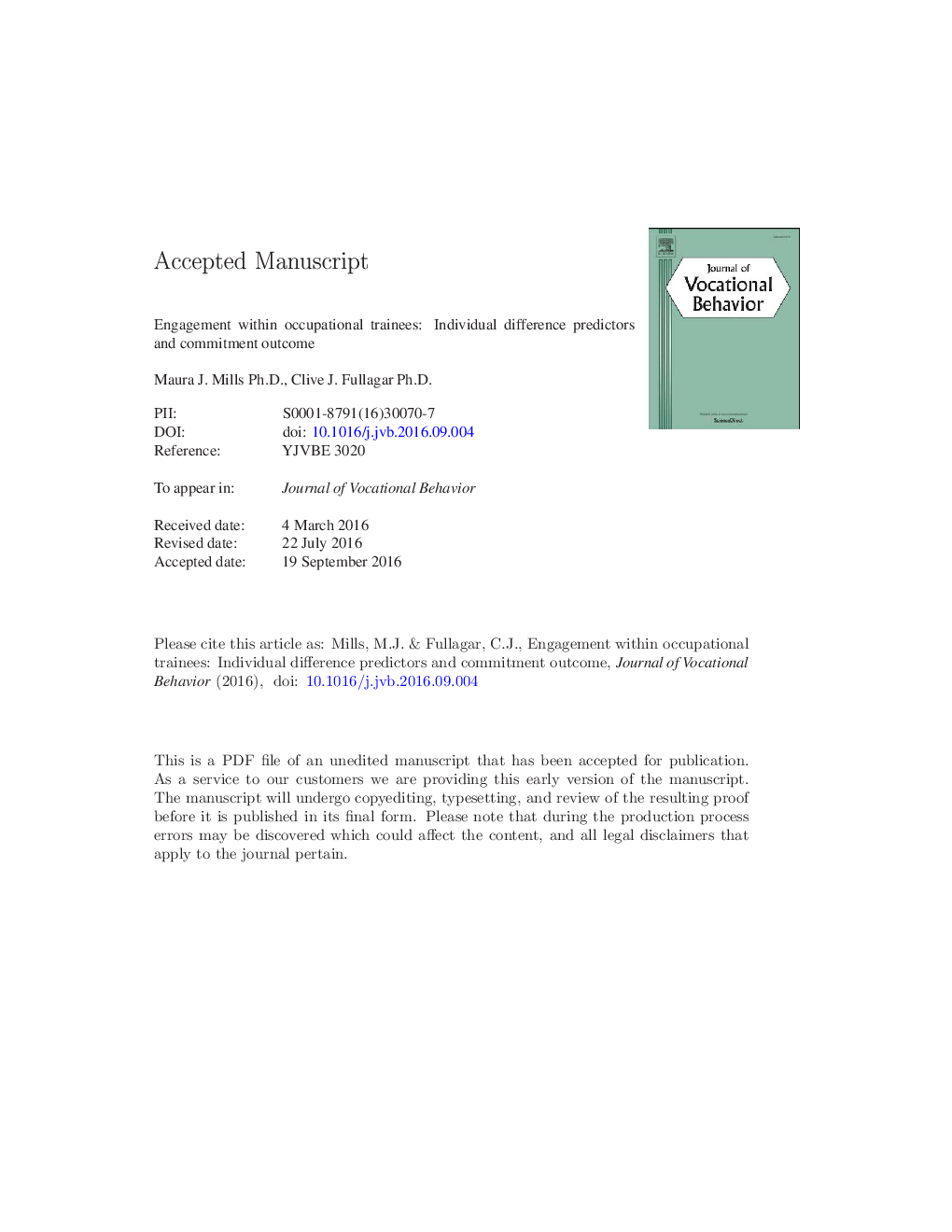ترجمه فارسی عنوان مقاله
مشارکت در کارآموزان حرفه ای: پیش بینی های فردی و نتایج تعهد
عنوان انگلیسی
Engagement within occupational trainees: Individual difference predictors and commitment outcome
| کد مقاله | سال انتشار | تعداد صفحات مقاله انگلیسی |
|---|---|---|
| 135538 | 2017 | 40 صفحه PDF |
منبع

Publisher : Elsevier - Science Direct (الزویر - ساینس دایرکت)
Journal : Journal of Vocational Behavior, Volume 98, February 2017, Pages 35-45
ترجمه کلمات کلیدی
نامزدی، انگیزه، تعهد شغلی، نیاز به موفقیت، مدل سازی معادلات ساختاری، آموزش و پرورش و آموزش حرفه ای
کلمات کلیدی انگلیسی
Engagement; Motivation; Occupational commitment; Need for achievement; Structural equation modeling; Vocational education and training;

